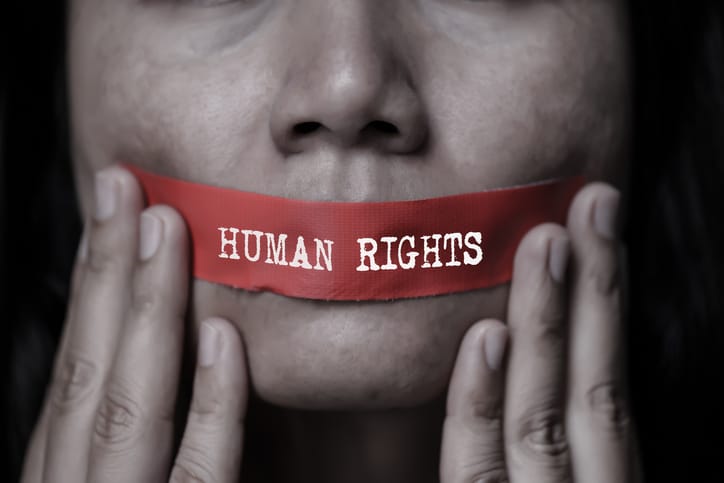
Last week, Australia joined the likes of the UK, France and other nations to have specific legislation that formally brings business into efforts to address modern slavery – the Modern Slavery Bill was passed last week and is now awaiting royal assent.
This achievement is the culmination of many years of advocacy by social justice and anti-slavery campaigners, and with the current state of affairs in the Australian Parliament and an impending election, it went through in the nick of time.
While groups have been quietly working towards a corporate reporting requirement on slavery behind the scenes for many years, the real push for the Act came when UK Prime Minister Theresa May and mining magnate and philanthropist Andrew Forrest started to directly pressure former prime minister Malcolm Turnbull.
Since the UK passed its law in 2015, May has been pushing other Commonwealth states to introduce legislation on modern slavery, which she called “the greatest human rights challenge of our time.” The issue has since been on the agenda at the 2016 Global Summit on Migration, the 2017 Commonwealth Heads of Government Meeting, and more recently at last week’s G20 summit. It’s also at the forefront of the Bali Process Government and Business Forum, which Australia co-chairs with Indonesia.
Despite warranted criticisms of the UK law, especially regarding the weakness of its transparency in supply chains provisions, the UK has seen some success. Through its Independent Anti-Slavery Commissioner – a provision purposefully left out of the Australian law – the country has seen a marked increase in victim identification and offender prosecutions and convictions.

What is the Modern Slavery Act and what will it mean in Australia?
After a year-long inquiry into whether Australia should establish an Act similar to the United Kingdom’s Modern Slavery Act 2015, the new law will require large organisations, including businesses, charitable institutions and universities, to report annually on their efforts to assess and address risk of modern slavery in their global supply chains.
The Act sits alongside the Commonwealth Criminal Code, where trafficking and slavery offences are defined under Divisions 270 and 271. The intention of this Act is to move from relying on reactive, criminal justice mechanisms to identify exploitation, towards encouraging Australian businesses to adopt practices that actively prevent such exploitation from occurring within their supply chains.
Specifically, the Act applies to organisations operating in Australia with an annual consolidated revenue of $100 million or more (estimated to be about 3000 entities). This will include the Australian government and corporate Commonwealth entities.
All entities that fall within the remit of the Act will be required to produce a Modern Slavery Statement. This report will pertain to conduct criminalised under Commonwealth Criminal Law Divisions 270 and 271: including slavery, servitude, forced labour, deceptive recruiting, debt bondage and forced marriage, human trafficking and – although not specified in the Commonwealth Criminal Code – child labour.
The Australian Act seeks to improve on the UK Act in some important ways. First, it doesn’t allow reporting entities to declare “no risk” as in the UK, where companies can fulfil their legislative requirements by simply submitting a page stating they have no risk and therefore have taken no action without having to substantiate that assessment.
Secondly, the Australian Act proscribes mandatory reporting criteria rather than guidance, which will help to avoid three problems in the UK’s experience. Specifically, the statements are required to include information about:
- structure, operations and supply chains
- risks of modern slavery practices in the operations and supply chains of the reporting entity, and any entities that the reporting entity owns or controls
- actions taken to assess and address those risks, including due diligence and remediation processes, and
- how the reporting entity assesses the effectiveness of such actions.
Setting this minimum standard for reporting will ensure that organisations’ statements are more or less comparable; that they will provide more substance, particularly on operations and risk, which are largely absent from many of the UK statements; and companies will have to include information on how they monitor and evaluate their efforts to know that what they’re doing is achieving something.
Online Modern Slavery Statements Register to be established
The federal government has also committed funding to provide non-binding guidance to business and to establish an Online Modern Slavery Statements Register to be managed by government for free public use, to enable consumers, investors, potential employees and others to monitor performance under the Act.
We’ll not see first reports until mid-2020, and from now until then, various companies will be working to understand the implications of the Act and how they’ll comply with these new requirements.
The Act doesn’t include civil penalties for non-compliance, or poor compliance. However, in response to mounting pressure from the Opposition, Greens and some parts of civil society, the government made four amendments in the Senate to add provisions that would encourage compliance. Specifically, these amendments sought to:
- give the Minister the authority to compel entities that fail to comply to provide explanations on why they failed to provide a compliant Modern Slavery Statement
- give the Minister the authority to publish details of an entity that fails to comply
- require the Minister to provide annual updates to the Parliament on the implementation of the Act and its effectiveness
- specifically include within the terms of the three-year review of the Act consideration of whether civil penalties are required to address non-compliance with the Act.
The Modern Slavery Act isn’t just an additional exercise for companies to add to the list of reporting or auditing requirements. It’s intended to bring Australian companies some way towards realising exploitation-free supply chains. Is this possible?
If taken as the first step on what will be a long “race to the top”, then yes. There are some critical areas for review over the next three years, ahead of the legislated three-year review of the Act. Monash is undertaking significant work in this area.





